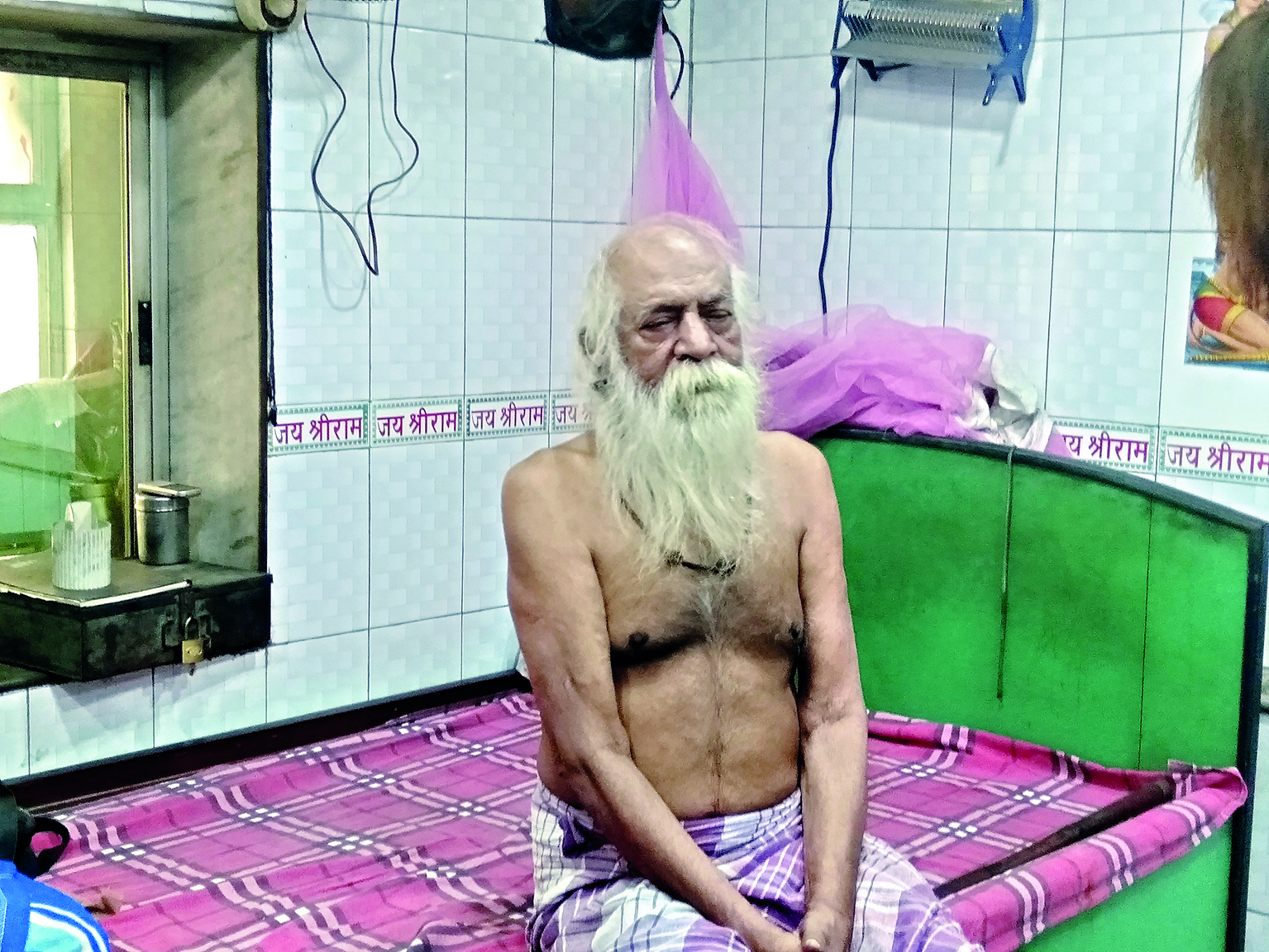Kolkata centenarian regrets inability to vote in this Lok Sabha polls

Kolkata: The venerable 108-year-old Barjan Das, arguably the city’s oldest voter, finds himself in a state of poignant dejection. For the first time in his long and illustrious history of electoral participation, he is unable to cast his cherished vote.
He has been casting his franchise since 1952 when the first elections were held in the country. His frail health prevented him from journeying to the nearest polling booth and alas, no representatives from the Election Commission arrived at his residence to collect his vote. Das, who has been living at Ramjanki Shiv Mandir (temple) at Ramnagar in Garden Reach for nearly 100 years, said: “Some political party people visited me a few days back and assured me that a team from the poll watchdog will come so that I can vote at home, considering my ailing health. But, since then no one has turned up.” He added: “I have hardly ventured out of the temple in the last five years.”
The Election Commission of India (ECI) in this Lok Sabha has introduced home voting which allows voters over 85 and PwDs (Persons with Disabilities) with a 40 per cent benchmark disability, to vote by submitting Form 12D within five days of the election notification. Das, who suffers from acute diabetes, kidney ailments and partial senility claimed ignorance regarding the application for home voting. The home voting for the seventh phase, where Das is a voter, was completed on Thursday. “If he had applied then our representatives would have visited him to collect his vote.,” an EC official said.
Das said that in the 2021 Assembly polls, he voted from home. He said a few EC representatives came to his home to collect his vote.
The Commission had introduced a home voting facility for citizens above 80 years in a restricted manner because of COVID-19 during the 2021 Assembly polls.
Originally a resident of Ayodhya, Uttar Pradesh he had walked all the way with his guru Ramnagre Das to then Calcutta when he was just eight years old, most likely in 1924.
Ramnagre built this temple at Garden Reach. Following his death, Bajrang Das became the custodian of this temple. He stays here with his three disciples — Sarju Das, Nirmal Das and Bimal Das.The grand old man recalled some historical events involving the freedom movement. When asked about the communal riots in Kolkata, he said, “I haven’t seen so much blood in my life. People killed each other in the name of religion,” he said. He was referring to Direct Action Day on August 16, 1946, when 10000 died in communal riots. An avid follower of Mahatma Gandhi, Das saw it all, including the rise and the fall of colonialism in India, the Independence, the Second World War, the death of Gandhi and the growth of democracy in the country.
“After the death of Bapu (Mahatma Gandhi), I lost interest in politics,” said Das, who was just 32 when Gandhiji was assassinated in 1948.
When asked why he wanted to vote, Das smiled and said in Hindi that he believed this would help change the country.



